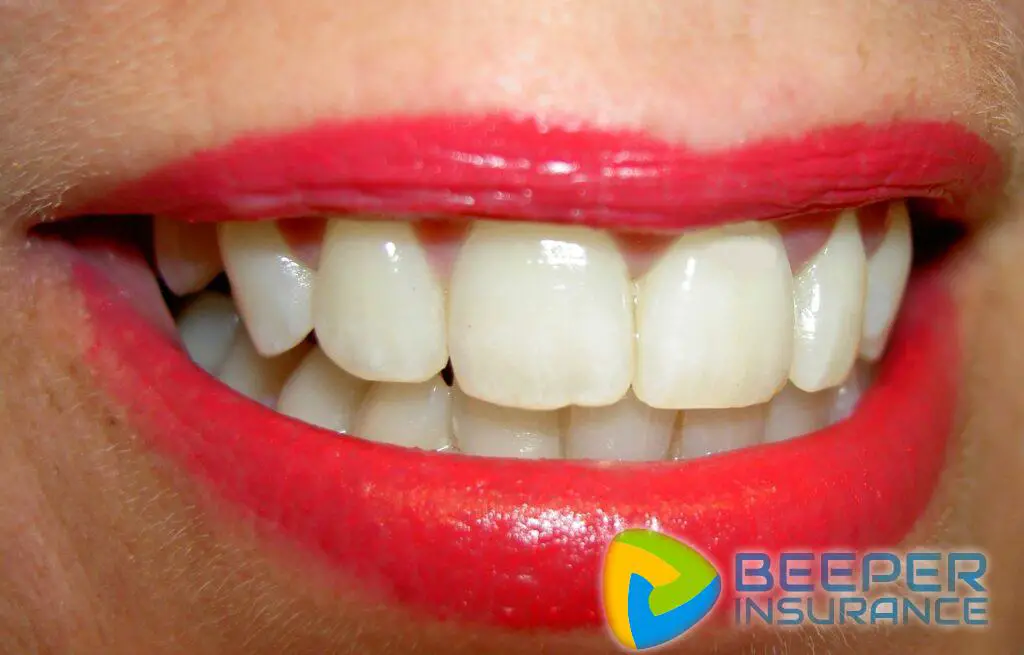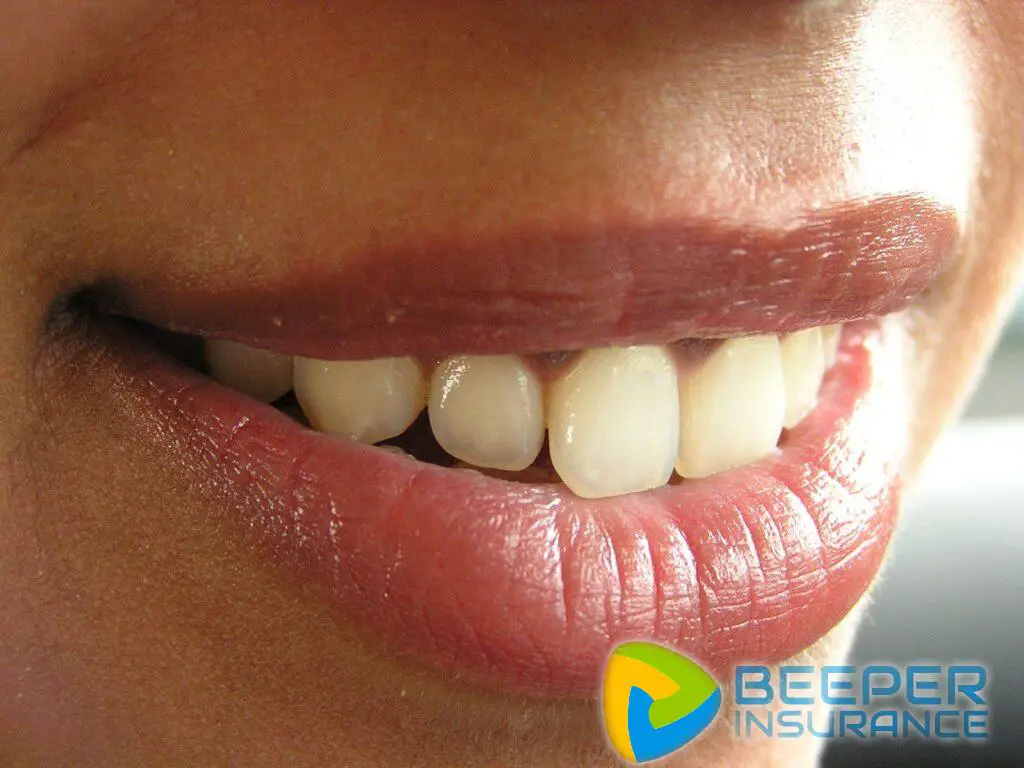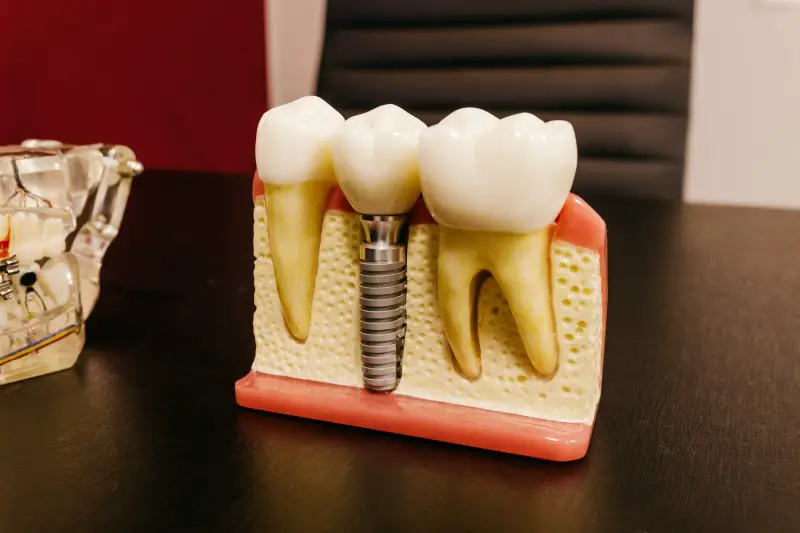Unlocking the Smile Vault: Are Veneers Covered by Insurance? The Truth Revealed – 2024
Introduction – Veneers Covered by Insurance
The Allure of Dental Veneers
Imagine having a smile that radiates confidence, a grin that turns heads and sparks joy. This is the transformative power of dental veneers, thin shells of tooth-coloured material custom-bonded to the front of your teeth. They’re like magic erasers for imperfections, masking chips, cracks, discolouration, and misalignment, revealing a picture-perfect smile.
Gone are the days when a shy smile hid behind insecurities. Cosmetic dentistry is booming today, with veneers as its crown jewel. Celebrities flash their pearly whites on red carpets, and social media influencers showcase dazzling transformations. The desire for a Hollywood smile has trickled down to the everyday person, making veneers a coveted dental treatment.
But before you embark on your smile makeover journey, a crucial question arises: will insurance cover the cost of unlocking your smile vault? The answer, like many things in life, is nuanced. Let’s delve deeper into the world of veneers and unveil the truth about insurance coverage.

Transformative Power of Veneers Covered by Insurance
Veneers are more than just cosmetic enhancements; they’re confidence boosters and self-esteem enhancers. They can:
· Conceal chips, cracks, and fractures: Say goodbye to those unsightly chips and cracks that mar your smile. Veneers seamlessly cover them up, giving you a smooth, even smile.
· Mask discolouration: Stubborn stains and tetracycline discolouration? Veneers can camouflage them, revealing a radiant, pearly white smile.
· Correct misalignment: Minor gaps, overlaps, and crowding can be addressed with veneers, creating a straighter, more harmonious smile.
· Enhance tooth shape and size: Veneers can reshape small or misshapen teeth, giving you a uniform, aesthetically pleasing smile.
· Boost confidence and self-esteem: A beautiful smile can do wonders for your confidence. You exude a natural radiance in every interaction when you love your smile.
Growing Interest in Cosmetic Dentistry
The rise of social media and the increasing emphasis on appearance have fueled the demand for cosmetic dentistry. People are more conscious of their smiles and are actively seeking ways to improve them. With their transformative potential and minimally invasive nature, veneers have become a popular choice.
But with this growing interest comes the financial consideration. Veneers can be a significant investment, and insurance coverage becomes paramount. So, let’s unlock the knowledge vault and reveal the truth about insurance and veneers.

Understanding Dental Veneers Covered by Insurance
Defining Veneers and Their Purpose
Before we unlock the mysteries of insurance coverage, let’s delve into the world of veneers themselves. Understanding their nature and purpose will equip you with valuable knowledge as you navigate your smile makeover journey.
What Are Dental Veneers?
Imagine wafer-thin shells custom-crafted from tooth-coloured materials like porcelain or composite resin. These are dental veneers, tiny masterpieces designed to adhere to the front surface of your teeth. Think of them as little masks, concealing imperfections and revealing a dazzling new smile.
Veneers come in various thicknesses, typically ranging from 0.3 to 0.7 millimetres. Their delicate nature belies their remarkable strength and durability. Bonded securely to your teeth, they become part of your smile, resisting staining, chipping, and even minor wear and tear.
Common Reasons for Veneer Placement – Veneers Covered by Insurance
Veneers aren’t just for celebrities and influencers; they cater to various cosmetic and functional needs. Here are some of the most common reasons people choose to get veneers:
· Discoloration: Stubborn stains from coffee, tea, or tetracycline antibiotics can be effectively masked by veneers, revealing a bright, white smile.
· Chips and Cracks: Minor chips and cracks that detract from your smile can be seamlessly covered with veneers, restoring a smooth, even appearance.
· Misalignment: Veneers can address minor gaps, overlaps, and crowding, creating a straighter, more harmonious smile without needing orthodontics.
· Uneven Tooth Shape and Size: Small or misshapen teeth can be reshaped and lengthened with veneers, resulting in a uniform and aesthetically pleasing smile.
· Worn Teeth: Veneers can protect and restore teeth weakened by excessive wear and tear, preserving their functionality while enhancing their appearance.
· Diastema (Gaps between Teeth): Veneers can close unsightly gaps between teeth, creating a more aesthetically pleasing smile.
· Confidence Booster: Ultimately, veneers can work wonders for your confidence. When you love your smile, you radiate a natural glow that shines through in every interaction.
Understanding these reasons empowers you to decide whether veneers are right for you. Remember, while veneers excel at cosmetic enhancements, they can also serve specific functional purposes.

Types of Dental Veneers: Unveiling the Material Marvels
Now that you’ve grasped the essence of dental veneers, it’s time to delve into the fascinating world of their material makeup. Like superheroes have different strengths and weaknesses, porcelain and composite resin veneers, the two main types, possess unique characteristics that cater to different needs and budgets. Let’s compare these material marvels and help you discover your perfect smile match!
Porcelain Veneers: Strength and Beauty in a Shell
Imagine the delicate beauty of chinaware combined with the unwavering strength of a diamond. That’s the essence of porcelain veneers. Crafted from high-quality dental porcelain, these beauties are renowned for their:
· Unmatched Durability: Porcelain veneers are solid, lasting up to 15 years with proper care. They’re resistant to chips, cracks, and staining, making them a long-lasting investment in your smile.
· Natural Translucency: Porcelain mimics the light-reflecting properties of natural teeth, creating a remarkably lifelike appearance. No more fake-looking, plastic grins!
· Stain Resistance: Coffee, tea, and even red wine are no match for porcelain’s stain-resistant prowess. Your dazzling smile will stay bright for years to come.
· Versatility: Porcelain veneers can address various cosmetic concerns, from chips and cracks to discolouration and misalignment. They’re the ultimate chameleons of the veneer world!
However, with great power comes great responsibility (and cost!). Porcelain veneers are generally more expensive than their composite counterparts. Additionally, they may require minimal tooth preparation, meaning removing a tiny amount of enamel to ensure proper bonding.
Composite Resin Veneers: Budget-Friendly Artistic Flair
Think of composite resin veneers as porcelain’s artistic and adaptable younger sibling. Made from a moldable resin material, they offer distinct advantages:
· Cost-Effectiveness: Compared to porcelain, composite resin veneers are significantly more affordable, making them an attractive option for budget-conscious smile seekers.
· Minimal Tooth Preparation: In most cases, composite veneers require minimal tooth preparation, making them a minimally invasive procedure.
· Versatility and Repairability: Composite resin can be sculpted and shaded to match your natural teeth seamlessly. Plus, if minor chips or cracks occur, they can be easily repaired.
However, like all things in life, there are trade-offs. Composite resin veneers are less durable than porcelain, typically lasting 5-7 years. They’re also slightly more susceptible to staining and may not have the same lifelike clarity as porcelain.
Choosing between porcelain and composite resin veneers depends on your needs and budget. If durability and long-term investment are your priorities, porcelain might be your champion. If affordability and minimal intervention are essential, composite resin could be your artistically.
The Role of Medical Necessity: When Veneers Go Beyond Cosmetic Choices
While we’ve primarily explored veneers as cosmetic marvels, their superpowers extend beyond just enhancing your smile. In certain situations, veneers can transition from aesthetic enhancements to medically necessary treatments, crucial in protecting oral health and function.
When Veneers Become Medically Necessary:
Imagine chipped teeth detracting from your smile and causing sharp edges that irritate your tongue or cheeks. Or picture severe discolouration impacting your confidence and masking underlying dental issues. These scenarios highlight how veneers can transcend cosmetic concerns and become essential tools for addressing dental health problems.
Here are some situations where veneers take on a medical role:
Addressing Dental Health Issues:
· Repairing severely damaged teeth: When chips, cracks, or fractures compromise the structure and function of your teeth, veneers can restore their strength and protect them from further damage.
· Protecting teeth weakened by medical conditions: Certain medical conditions like amelogenesisimperfecta or enamel hypoplasia can weaken tooth enamel. Veneers can act as a protective shield, safeguarding these vulnerable teeth.
· Correcting bite problems: In some cases, misshapen or misaligned teeth can affect your bite, leading to jaw pain and difficulty chewing. Veneers can reshape and reposition teeth, improving bite function and alleviating discomfort.
· Addressing speech impediments: Gaps or misalignments can sometimes impact speech clarity. Veneers can close gaps and correct alignments, potentially improving speech articulation.
Insurance Considerations for Medically Required Veneers:
The good news is that when veneers serve a medical purpose, insurance coverage becomes a distinct possibility. Unlike cosmetic procedures, dental insurance plans often partially or fully cover medically necessary treatments.
However, navigating the nuances of insurance coverage requires expert guidance. Your dentist can play a crucial role in advocating for medically necessary veneers. They can document your dental health issues and explain how veneers will address them, providing medical justification for insurance coverage.
Veneer FAQs: Unraveling the Mysteries of Your Smile Makeover
Getting veneers can be an exciting journey towards a beautiful, confident smile. But as with any new adventure, questions are bound to arise. Worry not, for this FAQ section is here to unravel the mysteries and equip you with the necessary knowledge!
How do I care for my veneers?
Veneers require good oral hygiene practices, just like natural teeth. Brush twice daily, floss regularly, and schedule regular dental checkups for optimal care. Avoid biting on complex objects to prevent chipping.
How long do veneers last?
With proper care, porcelain veneers can last 10-15 years, while composite resin veneers typically last 5-7 years.
Conclusion: Unveiling the Secrets of Your Smile Vault
The journey through the world of dental veneers has been an insightful adventure, revealing their transformative power, material marvels, and potential role in medical necessity. We’ve explored the intricacies of insurance coverage and delved into the exciting realm of smile transformation. Now, as you stand at the threshold of unlocking your own smile vault, remember these key takeaways:
· Veneers are more than just cosmetic enhancements; they’re tools for confidence, self-esteem, and sometimes oral health.
· Understanding the different types of veneers, like porcelain and composite resin, empowers you to make informed choices based on your needs and budget.
· When veneers serve a medical purpose, insurance coverage becomes possible, opening doors to a brighter smile.
· The veneer journey, from consultation to care, requires collaboration with your dentist, who will guide you every step. Ultimately, the decision to unlock your smile vault with veneers is personal. Weigh the possibilities, navigate the nuances, and trust your gut. Remember, a confident, radiant smile is not just an aesthetic achievement; it reflects your inner joy and is a gateway to endless possibilities.





